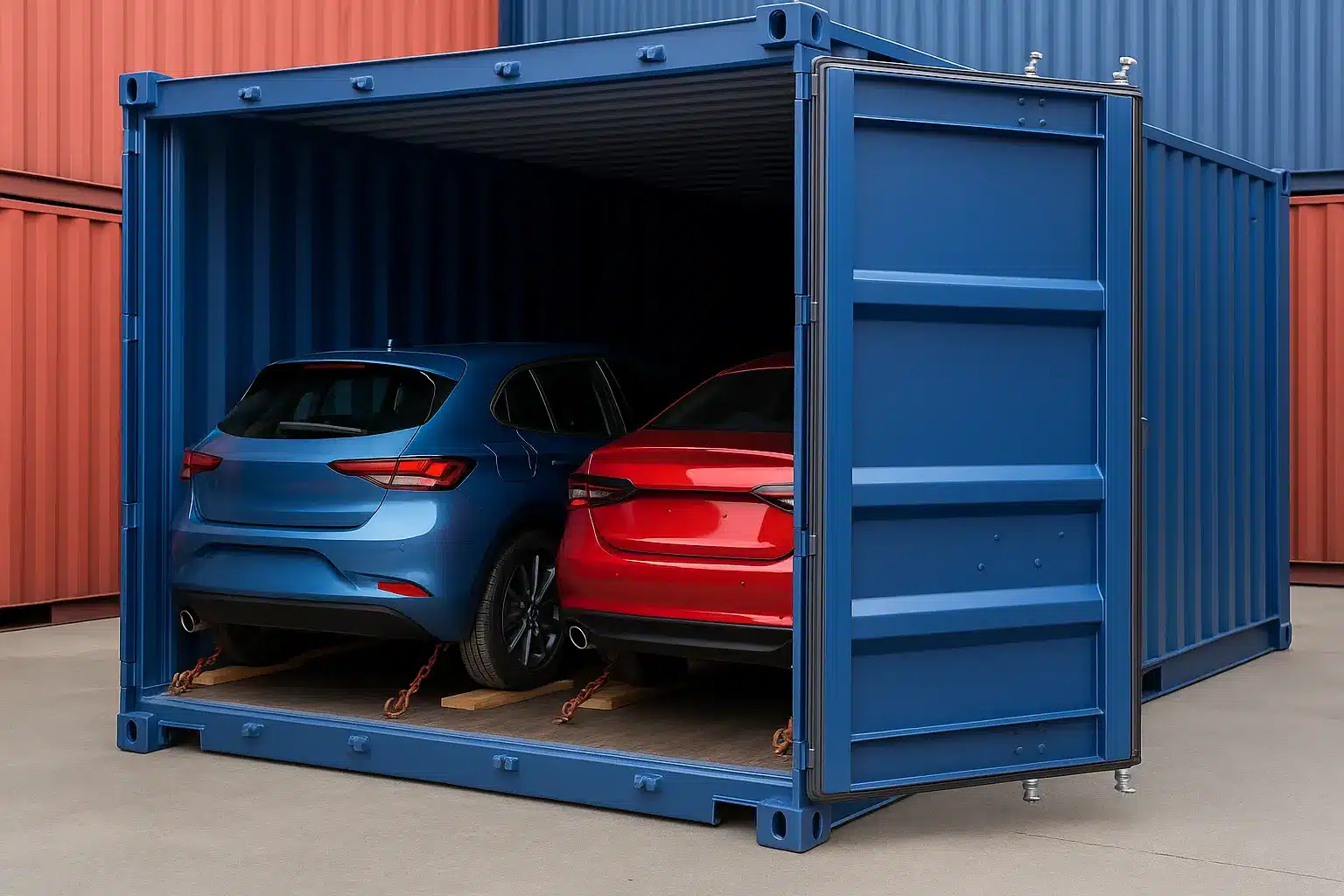Typically, the cost to ship a car to Germany ranges from $1,100 to $3,000. However, several factors influence the final price, including vehicle size, shipping method, pickup location, and the U.S. departure port. For example, luxury vehicles, SUVs, and oversized units often cost more due to additional space and specialized handling requirements. Therefore, we always provide clear, upfront, and transparent pricing before shipment so you can plan with confidence.
🚢 Ship with Confidence. Partner with Top NVOCCs and leading global ocean carriers.
👉 Get a Rate:
https://alltransportdepot.com/roro-shipping-cost/
👉 Place Your Order:
https://alltransportdepot.com/place-order/
📲 WhatsApp: +1 (470) 791 4497
📞 Call: +1 (678) 528 5794
📧 Email: ship@alltransportdepot.com
Moreover, we specialize in international auto logistics and actively support customers shipping cars to Germany using both RoRo (Roll-On/Roll-Off) and container shipping services from major U.S. ports. With competitive rates, dependable sailing schedules, and proactive communication, we streamline overseas vehicle transport and make the entire process simple, efficient, and stress-free.
💲 Car Shipping Costs & Rates
⚓ Germany Ports
Additionally, we provide reliable vehicle delivery services throughout Germany, ensuring efficient routing and well-coordinated customs handling at the destination. As a result, customers shipping a car to Germany benefit from smooth port operations and timely inland movement. Depending on your final delivery location, our logistics team actively selects the most suitable port to optimize cost and transit time.
-
Port of Bremerhaven – Germany’s primary port for vehicle imports and widely used for RoRo shipments
-
Port of Hamburg – A major container port that supports vehicle imports with strong inland connections
-
Port of Emden – Frequently used for automotive logistics and specialized vehicle shipments
Ultimately, we choose the most cost-effective and time-efficient port for each shipment to keep your delivery smooth, compliant, and on schedule.
📑 Documents
Shipping a car requires essential documents such as the original title, identification, and purchase invoice. Our team assists you in preparing all necessary paperwork to ensure smooth processing at the port.- Original vehicle title
- Government-issued ID
- Bill of sale/purchase invoice
📑 Import Rules (Germany)
Furthermore, we actively help customers navigate Germany’s customs regulations and vehicle import requirements. As a result, anyone preparing to ship a car to Germany can avoid delays, penalties, and unexpected costs by understanding these rules in advance.
Key import requirements include:
-
Vehicles must comply with EU safety and emissions standards
-
Customs authorities calculate import duties and taxes based on the CIF value (Cost, Insurance, and Freight)
-
Authorities apply VAT in accordance with EU regulations
-
A licensed customs broker must handle customs clearance
-
The appointed customs agent must provide a valid EORI number for import processing within the EU
Additionally, our team prepares, reviews, and coordinates all required documentation ahead of shipment. Consequently, your vehicle clears customs efficiently and remains fully compliant upon arrival in Germany.
🧰 How to Prepare Your Car
Preparing your car includes a simple checklist: remove personal items, reduce fuel levels, and document the vehicle’s condition. Following these steps helps avoid delays and ensures your car is ready for safe loading and transport.- Remove personal belongings (shipping of cars excludes personal effects unless in a container)
- Leave less than ¼ fuel tank
- Provide export docs
- Inspect and photograph the vehicle
✅ Why Choose All TransportDepot?
When you ship car with All TransportDepot, you benefit from:
-
FMC Licensed & Bonded NVOCC (#021693)
-
20+ years of international car shipping experience
-
Nationwide U.S. pickup from all major cities
-
Affordable, competitive rates with no hidden fees
-
Full insurance options for peace of mind
-
Expert support with documentation and customs compliance
👉 We ensure your vehicle arrives safely and on schedule.
👉 Get a Free Quote | 👉 Book Your Shipment
Shipping an Electric Car from the USA
❓ Frequently Asked Questions – Car Shipping to Germany
How much does it cost to ship a car to Germany from the USA?
Typically, customers shipping a car to Germany pay between $1,100 and $3,000. However, the final price depends on several factors, including vehicle size, shipping method, pickup location, and the U.S. departure port. For example, luxury or oversized vehicles usually fall on the higher end of this range due to added space and handling requirements.
🚢 Ship Worldwide with a Licensed U.S. Freight Forwarder
Cars • Containers • Heavy Equipment • RoRo • Air Freight
👉 Place Your Order:
https://alltransportdepot.com/place-order/
📞 Call: +1 (678) 528-5794
📧 Email: ship@alltransportdepot.com
All TransportDepot Inc.
FMC Licensed & Bonded NVOCC #021693
What Is the Cheapest Way to Ship a Vehicle to Germany?
We are usually asked if one should consider RoRo car shipping to Germany. Typically, RoRo (Roll-on/Roll-off) shipping provides the most economical solution for operational vehicles. However, many customers still choose container shipping when they want extra protection or must meet specific import requirements.
How long does it take to ship a car to Germany?
Generally, most shipments arrive in Germany within 3 to 5 weeks. However, vessel schedules, port congestion, and customs processing can influence final delivery timelines.
What are Germany’s car import rules and restrictions?
Importantly, Germany enforces several vehicle import requirements:
-
Vehicles must meet EU safety and emissions standards
-
Customs authorities calculate duties and VAT using the CIF value
-
Licensed customs agents must complete customs clearance
By preparing documentation in advance, you can significantly reduce the risk of delays.
Should I Choose RoRo or Container Shipping? Enclosed car shipping to Germany
When comparing shipping options, RoRo shipping delivers the lowest cost and works best for running vehicles.
On the other hand, container shipping offers added security and remains ideal for high-value, non-running, or damaged vehicles. We offer enclosed car shipping to Germany for luxury cars or at owners’ request.
Ultimately, when it comes to auto transport to Germany, our team evaluates your vehicle and budget to help you choose the safest and most cost-effective option.
Can you ship non-running or damaged vehicles to Germany?
Yes. In fact, customers shipping non-running or damaged vehicles to Germany typically use container shipping. When needed, we use specialized loading equipment to ensure safe and secure handling.
Do You Offer Inland Vehicle Pickup in the USA?
Yes. In addition, we provide nationwide door-to-port pickup across the United States when it comes to auto transport to Germany.
Specifically, we collect vehicles from:
-
Residential locations
-
Dealerships
-
Major auto auctions such as Copart, IAAI, and Manheim
How do I get a free quote for car shipping to Germany?
Finally, getting started is simple. Use our online rate calculator or contact our team directly, and share your vehicle details. Once we receive your information, we promptly send a fast, transparent quote with a complete cost breakdown.
2025’s Most Popular Imported Vehicles: Top Models
🚢 Ship with Confidence. Partner with world-renowned NVOCCs and leading global ocean carriers.
👉 Get a Rate: https://alltransportdepot.com/roro-shipping-cost/ 👉 Place Your Order: https://alltransportdepot.com/place-order/ 📲 WhatsApp: +1 (470) 791-4497a 📞 Call: +1 (678) 528-5794 📧 Email: ship@alltransportdepot.com All TransportDepot Inc. FMC Licensed & Bonded NVOCC #021693

Maria is the operations manager at SoCal Auto Movers, where she oversees the daily operations of their car shipping services. Her efficiency and problem-solving skills ensure that each shipment, whether local or long-distance, goes off without a hitch.



